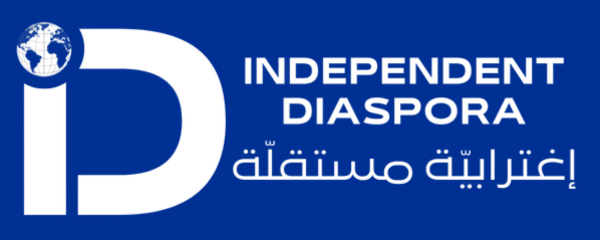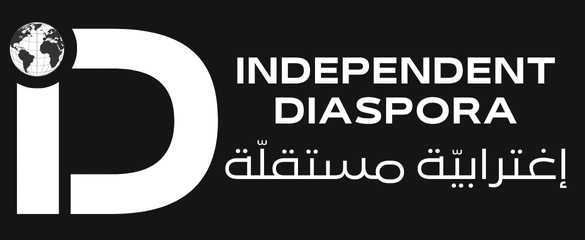 Ibrahim Dagher is a Lebanese-American educator and independent analyst based in Boston, MA, specializing in public policy and political reform.
Ibrahim Dagher is a Lebanese-American educator and independent analyst based in Boston, MA, specializing in public policy and political reform.
November 4, 2025
Introduction
For more than six years, Lebanon’s financial crisis has dragged on, hollowing out its economy, institutions, and citizens’ hopes. What began as a liquidity squeeze in 2019 has metastasized into a full-blown collapse: a nation almost locked out of global finance, a currency greatly depreciated, and a public sector barely surviving. Ever since the crisis began, the political class has promised reform and reconstruction, yet conditions have only worsened.
This long agony resulted from the inability of Lebanon’s domestic financial system, for whatever reasons, to inspire or sustain trust. The central bank, once a symbol of prudence, has been consumed by scandal and opacity. Commercial banks, entangled in sectarian patronage, have effectively frozen depositors’ life savings while financing state corruption. No internal reshuffle can restore confidence so long as the same political forces control the levers of finance.
Yet Lebanon has taken bold, protective measures before. The decision decades ago, at a rare moment of foresight, to protect the nation’s gold reserve has functioned as a quasi-constitutional safeguard, insulating a vital national asset from political misuse. Given Lebanon’s worsening financial struggles and entrenched political dysfunction, it is time to extend that same principle to its entire financial system.
A New Model: Dollarization and External Anchor
Lebanon’s recovery depends on rebuilding credibility, and credibility requires consistency. Monetary policy can no longer remain at the mercy of domestic political pressures, arbitrary decrees, or the personal ambitions of those in power. The system must be anchored in an external standard that guarantees discipline and transparency, minimizing the role of local manipulation.
One practical way to achieve this would be for Lebanon to adopt a stable, internationally recognized currency like the U.S. Dollar as its official tender while eliminating or drastically curtailing the monetary powers of its central bank. Preserving the so-called monetary sovereignty of Lebanon effectively serves the interests of a corrupt elite that hides behind it for personal gains. Dollarization would stabilize prices overnight and prevent the kind of rampant manipulation that has flourished under multiple exchange rates.
But true reform requires more than a new currency; it demands new financial architecture and infrastructure. Lebanon’s current banking system — insolvent, distrusted, and insufficiently regulated — should be liquidated and replaced by a group of major international banks licensed to operate in the country.
These institutions, drawn from North and South America, Europe, Africa, the Arab Gulf, and Australia, would operate independently but within a coordinated framework supervised by Lebanese and international oversight bodies. This selection of participating banks is designed to include banks headquartered where the Lebanese diaspora lives and, therefore, would serve not only Lebanese citizens at home but also facilitate greater engagement by Lebanese citizens and emigrants living and working abroad. Their mandate would be to:
- Absorb and gradually restore frozen deposits, prioritizing small and medium accounts.
- Fully reintegrate Lebanon into the global financial system and restore trust in its financial structure.
- Provide transparent and secure banking for citizens and for the millions of Lebanese in the diaspora.
Formalizing and Improving Economic Reality
Lebanon’s economy is already heavily, albeit unofficially, dollarized. From high-value transactions in real estate, vehicle purchases, and private school tuitions, to basic goods and services, trading happens mostly in dollars but, unfortunately, cash dollars.
The shift to official dollarization moves the economy out of the shadows in these key areas:
- Cash to Credit: Formal dollarization creates the necessary legal and institutional stability for credit, checks, transfers, and loans to function again. This transition is essential for moving the economy away from the current inefficient, risky, and unregulated cash economy toward a secure, modern, and transparent credit economy.
- Taxation and Transparency: The current cash economy favors informal transactions, evasion, and black-market activities, starving the government of revenue and facilitating illegal activities. By bringing transactions back through a formal, international banking system, financial transparency increases. This process inherently shrinks the size of the hidden economy and broadens the tax base, providing the government with legitimate, non-inflationary revenues that it sorely needs.
Restoring Depositors’ Rights and Confidence
At the heart of Lebanon’s financial tragedy lies the suffering of over a million depositors whose savings have been trapped for years in frozen accounts. The new arrangement would transform their prospects by increasing the amounts they can access and providing a clear horizon toward the full restoration of their funds in the foreseeable future.
Under this system, depositors would benefit from a combination of competition-driven incentives offered by the newly licensed international banks and structured guarantees established between those banks and the Lebanese government. The banks, in effect, would bail out depositors in the short term, while the government would assume long-term obligations toward those banks, backed partially by proceeds from the liquidation of defunct domestic banks and the assets of a downsized or dissolved central bank, including proceeds from companies it owns.
Institutional Transition: ITA and IOG
As the central bank’s powers are formally curtailed, an Independent Transitional Authority (ITA) would be established to manage the technical dissolution of Lebanon’s domestic banking sector and the transfer of assets and liabilities to the new group of international banks.
This temporary executive body would be composed of nonpartisan, globally respected technocrats from Lebanon and the Lebanese diaspora as well as technical representatives from the relevant Lebanese ministries such as finance, economy, and justice. The ITA’s mandate will be to manage the transition from the collapsed system to the new dollarized one. Its duties shall include:
- Setting terms for licensing the invited international banks.
- Administering the liquidation process of the former local banks.
- Working with the IOG (see below) to manage and disburse frozen depositor funds.
- Ensuring the new banking structure adheres to equitable principles of geographic and societal inclusion.
The ITA would operate under a fixed mandate of, say, three years, after which its functions would revert to permanent financial governance structures designed in partnership with the IOG.
During its mandate, the ITA would work in collaboration with an International Oversight Group (IOG) composed of representatives from the World Bank, the International Monetary Fund (IMF), the Arab Monetary Fund (AMF), as well as independent audit bodies and observers from the participating international banks. Its mandate will be to:
- Provide continuous and public monitoring of the transition and serve as an international umbrella protecting the ITA from undue political interference.
- Guarantee transparency, enforce international compliance standards, and ensure that all performing assets and verified liabilities are transferred to the newly licensed international banks under binding international supervision.
Depositors’ balances would be mapped and guaranteed through a combination of interbank settlement mechanisms, escrow-managed transition accounts, and government-backed instruments, thereby preventing any loss of deposits while, again, insulating the process from political interference.
Together, the ITA and IOG would provide both the domestic administrative capacity and international assurance needed to manage this transformation. These mechanisms would deliver immediate relief and a credible long-term resolution. Depositors would finally gain meaningful and predictable access to their funds rather than arbitrary monthly limits. Lebanon would gain a transparent, solution-driven, and rule-based framework that replaces decades of opacity and corruption, and stops the never-ending and useless debate over responsibility among the banks, the central bank, the government, and depositors themselves.
Solutions and Guardrails
In a country where corrupt politics has long undermined national institutions and the public good, anything that can be placed on automatic, beyond the reach of political manipulation, should be seriously considered. This reform would do just that: provide speedy relief to depositors and remove monetary control, to a great degree, from sectarian hands and anchor it in transparent, rules-based structures.
To provide quick relief along with a major liquidity stimulus, the incoming international banks, in exchange for exclusive licensing in the new stable economy, will be required to assume a short-term, limited liability for the immediate liquidity needs of small and medium depositors. This provides instant access and rebuilds faith in the banking system. For example, all depositors regain immediate, unhindered access to their first $100,000 of frozen deposits by the new international banks, funded by their capital injection into the Lebanese market.
This, in turn, will be made possible by the government assuming the long-term debt burden of all frozen deposits. The government, under ITA and IOG supervision, will assume this obligation to eventually redeem the full value of the deposits, using future tax revenues generated by the now-transparent dollarized economy, revenues from government assets and profitable entities, not to mention funds from Arab, European, and other international official sources in the form of outright grants or deposits in the new system to ensure its successful launch and longer-term prospects.
To prevent exclusion, collusion, and discrimination, participating banks would be bound by clear social, operational, and legal obligations, such as:
- Maintaining a minimum share of deposits from smaller accounts (say, under $50,000).
- Hiring and training a majority-Lebanese workforce.
- Ensuring geographic distribution of branches throughout the country– not just Beirut and other major cities – guaranteeing spread out access and greater opportunities for local development.
- Committing to annual public reporting on inclusion, fair lending, and compliance metrics under independent international audit.
The above mentioned relief and protection measures shall, indeed, ensure that the new system serves the Lebanese people, not just the privileged few.
A Contingency for the Future
The U.S. Dollar remains the most stable and trusted currency in global finance, making it the natural anchor today. But Lebanon’s strategy should remain flexible in case of unforeseen circumstances that could affect the Dollar’s integrity as the currency of choice.
Such circumstances must not be determined arbitrarily but through strictly defined and measurable indicators. If they arise, Lebanon could transition to the Euro or even join a future Arab currency union modeled on the Eurozone and backed by the financial strength of the Arab Gulf states. The essential principles are financial stability and permanence of discipline, not eternal loyalty to any particular currency.
Precedents and Prospects
Lebanon would not be the first nation to attempt stabilizing its economy through dollarization and financial internationalization. These are some cases:
- Panama, dollarized since 1904, has maintained financial stability and openness, though not without challenges related to transparency and income disparity.
- Ecuador (2000) adopted the U.S. Dollar after a banking collapse, achieving greater price stability but continuing to struggle with structural inequality and political volatility.
- El Salvador (2001) dollarized to attract investment and strengthen fiscal discipline; while it succeeded in curbing inflation, political tensions and social inequities persisted.
- Kosovo and Montenegro (2002) unilaterally adopted the Euro, gaining access to a more stable financial environment and integration with Europe that could not have been achieved with national currencies.
These cases illustrate that monetary reform can bring stability and credibility, but not necessarily resolve deeper political dysfunction. Lebanon would be no exception. The country’s crisis is ultimately political, and no economic framework alone can substitute for effective governance.
Still, reduced corruption, renewed investment, and improved financial discipline could help create the conditions in which better politics might take root, if for nothing else, then for the broader prosperity they could bring to all. Besides, while dollarization cannot alone prevent corruption or mismanagement, it can constrain the channels through which they can occur, narrowing the scope for abuse.
Replacing the central bank and current domestic banks with a group of international institutions under transparent oversight would mark a major step toward rebuilding trust. It would reduce opportunities for political capture, strengthen compliance with international financial standards, and address long-standing global concerns about Lebanese banking secrecy and money laundering.
Such reforms cannot heal Lebanon’s political divides, but they could sharply improve transparency, curb corruption, and help restore the country’s international credibility, creating a stronger economic foundation on which political renewal might eventually rest.
In the end, what matters is public confidence in Lebanon’s financial system, not the rhetoric of politicians defending a failed status quo.
The Benefits
This transformation would:
- Provide a realistic, fair, and time-bound path for depositors to recover their frozen savings through incentives from competing international banks and structured government guarantees.
- Deliver immediate price stability and restore purchasing power.
- Combat the hidden economy by restoring credit, shrinking the informal sector, and ensuring that economic activity passes through transparent, regulated, and taxable channels.
- Increase diaspora engagement, making transfers and investments simpler, safer, and more impactful.
- Attract foreign direct investment by removing currency risk and restoring international confidence.
- Minimize political interference in monetary policy.
- Eliminate opaque domestic banking structures, increase transparency, and address international concerns about banking secrecy and money laundering, all while sharply reducing opportunities for corruption.
The transition will not be simple, but Lebanon has already endured collapse. What remains is to choose between recurring paralysis under the old system or rebirth through a new one anchored in transparency, global trust, and equal opportunity.
Conclusion: Rebuilding Trust, Not Insolvent Banks
Lebanon’s financial problem is not lack of money; it is the absence of trust.
By anchoring Lebanon’s economy to stable global institutions and currencies, and by ensuring that political actors can no longer manipulate monetary life, the Lebanese people could gain faster access to their frozen assets and, more importantly, genuine confidence in the future.


